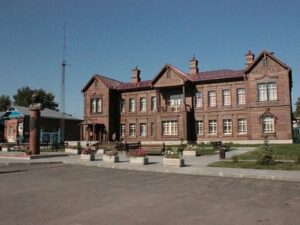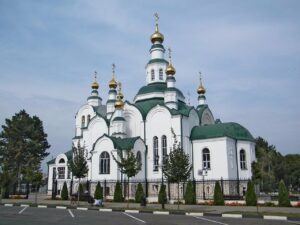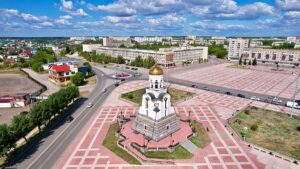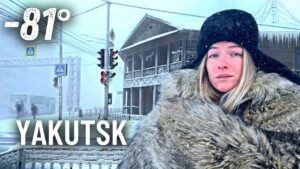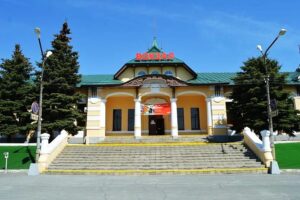Pécs: A Cultural Tapestry in the Heart of Hungary

Introduction to Pécs
Located in the southwestern part of Hungary, Pécs stands as a vibrant cultural hub with a rich history dating back over 2,000 years. Known for its diverse architectural styles, UNESCO World Heritage sites, and thriving arts scene, Pécs offers visitors a unique blend of Roman, Turkish, and Hungarian influences. From its ancient Roman ruins and Ottoman mosques to its Baroque churches and contemporary galleries, Pécs captivates travelers with its cultural richness, culinary delights, and warm hospitality.
Historical Overview
Roman Origins
Pécs, originally known as Sopianae, was founded by the Romans in the 2nd century AD. As a key settlement in the province of Pannonia, Sopianae flourished as a center of trade, commerce, and Roman culture. Archaeological excavations have uncovered well-preserved Roman remains, including baths, amphitheaters, and mosaics, offering insights into Pécs’ ancient past.
Early Christian Heritage
During the early Christian era, Pécs became an important center of Christianity in the region. The Early Christian Necropolis of Pécs, a UNESCO World Heritage site, contains over 1,000 tombs and burial chambers dating from the 4th to the 6th centuries AD. The site features remarkable frescoes, sarcophagi, and epitaphs, reflecting the artistic and religious significance of early Christianity in Pécs.
Ottoman Influence
In the 16th century, Pécs fell under Ottoman rule, shaping the city’s architectural and cultural landscape. Ottoman rulers built mosques, baths (hamams), and minarets, leaving a lasting imprint on Pécs’ urban fabric. The Gazi Kasim Mosque, built in the 16th century and later converted into a Catholic church, exemplifies Pécs’ multicultural heritage and architectural fusion.
Architectural and Cultural Landmarks
Pécs Cathedral (St. Peter and St. Paul Basilica)
The Pécs Cathedral, dedicated to St. Peter and St. Paul, is a masterpiece of Hungarian Baroque architecture. Built in the 18th century, the cathedral features a stunning façade, intricate frescoes, and a soaring dome. Its interior houses ornate altars, chapels adorned with sculptures, and a treasury with religious artifacts, attracting pilgrims and art enthusiasts alike.
Zsolnay Cultural Quarter
The Zsolnay Cultural Quarter, located in the former Zsolnay porcelain factory, is a dynamic cultural complex in Pécs. Named after Vilmos Zsolnay, a pioneer in Hungarian ceramics, the quarter features museums, galleries, workshops, and outdoor exhibition spaces. Visitors can explore the Zsolnay Museum, showcasing the history of Hungarian ceramics and decorative arts, and attend cultural events, art exhibitions, and craft workshops throughout the year.
Pécs Synagogue
The Pécs Synagogue, also known as the Széchenyi Square Synagogue, is a testament to Pécs’ Jewish heritage and architectural grandeur. Built in the Moorish Revival style in the late 19th century, the synagogue features ornate arches, stained glass windows, and a majestic dome. Today, it serves as a cultural center and venue for concerts, lectures, and exhibitions, promoting intercultural dialogue and preserving Jewish history in Pécs.
Early Christian Necropolis of Pécs
The Early Christian Necropolis of Pécs, a UNESCO World Heritage site, is an archaeological complex that encompasses over 1,000 burial chambers and tombs dating from the Roman and early Christian periods. Visitors can explore the site’s underground chambers, view intricate frescoes and mosaics, and learn about Pécs’ early Christian heritage through guided tours and museum exhibits.
Cultural Experiences and Activities
Pécs National Theatre
The Pécs National Theatre is a cultural landmark in Pécs, renowned for its diverse repertoire of drama, opera, ballet, and musical performances. Housed in a historic building with neo-Baroque architecture, the theatre offers a vibrant program of productions, including classical works, contemporary plays, and performances by Hungarian and international artists. Visitors can attend evening performances, matinees, and special events, experiencing the rich tradition of Hungarian performing arts.
Cultural Festivals and Events
Pécs hosts a variety of cultural festivals and events throughout the year, celebrating its artistic heritage and multicultural diversity. The Pécs Cultural Festival, held annually in summer, features music concerts, dance performances, theater productions, and art exhibitions in venues across the city. Other festivals include the Pécs International Dance Festival, showcasing contemporary dance performances by renowned choreographers and dance companies, and the Pécs Spring Festival, highlighting classical music concerts, opera performances, and literary readings.
Pécs Gallery Night
Pécs Gallery Night is a popular cultural event that takes place several times a year, inviting art enthusiasts to explore Pécs’ galleries, museums, and cultural institutions after dark. Participating venues host special exhibitions, artist talks, and interactive art installations, creating a lively atmosphere where visitors can engage with contemporary art trends and discover emerging Hungarian artists.
Culinary Delights and Local Cuisine
Traditional Hungarian Cuisine
Pécs’ culinary scene reflects Hungary’s rich gastronomic heritage, featuring hearty dishes, savory stews, and sweet pastries. Visitors can savor traditional Hungarian specialties such as goulash (gulyás), paprika chicken (paprikás csirke), and lángos (fried dough topped with garlic and cheese). Local markets offer fresh produce, artisanal cheeses, and homemade preserves, providing a taste of Pécs’ agricultural traditions and culinary craftsmanship.
Pécs Farmers’ Market
The Pécs Farmers’ Market is a culinary hotspot where visitors can sample regional delicacies, purchase fresh fruits and vegetables, and interact with local farmers and artisans. Held weekly in Pécs’ city center, the market showcases organic produce, homemade jams, honey, and baked goods, creating a vibrant atmosphere for food enthusiasts and culinary explorers.
Outdoor Adventures and Nature Escapes
Mecsek Mountains
The Mecsek Mountains, located near Pécs, offer outdoor enthusiasts a haven for hiking, mountain biking, and nature walks. Trails wind through lush forests, meadows dotted with wildflowers, and panoramic viewpoints overlooking Pécs and its surroundings. Visitors can explore natural landmarks such as the Pécsvárad Castle ruins, visit the Mecsek Arboretum, and discover hidden caves and springs nestled within the mountain range.
Pécs Botanical Garden
The Pécs Botanical Garden is a tranquil oasis within the city, showcasing diverse plant species, botanical collections, and themed gardens. Established in the late 19th century, the garden features native Hungarian flora, exotic plants from around the world, and educational exhibits on biodiversity and conservation. Visitors can stroll along scenic pathways, attend guided tours, and participate in seasonal events and workshops organized by the botanical garden.
Practical Information for Travelers
Getting There and Around
Pécs is accessible by train, bus, or car from Budapest and other major cities in Hungary. Pécs Public Transport operates buses and trams within the city, providing convenient access to attractions, cultural venues, and outdoor recreational areas. Rental cars and bicycles are available for exploring Pécs and its surrounding countryside, offering flexibility for day trips and scenic drives.
Accommodation Options
Pécs offers a range of accommodation options to suit every traveler’s preferences and budget. Visitors can choose from boutique hotels, guesthouses, and apartments located in the city center or in scenic neighborhoods overlooking Pécs’ historic landmarks. Many accommodations feature modern amenities, complimentary breakfast, and personalized hospitality, ensuring a comfortable stay in Pécs.
Travel Tips and Recommendations
- Currency: The official currency in Hungary is the Hungarian Forint (HUF). ATMs and currency exchange offices are available in Pécs for convenient cash withdrawals and currency exchange.
- Language: Hungarian is the official language spoken in Pécs and throughout Hungary. While English and German are also spoken in tourist areas and hotels, learning a few basic phrases in Hungarian can enhance communication and cultural interactions with locals.
- Safety: Pécs is generally a safe destination for travelers, with low crime rates and a welcoming atmosphere. As with any travel experience, it is advisable to exercise caution, respect local customs, and adhere to guidelines provided by local authorities.
Conclusion
Pécs, with its rich cultural heritage, architectural splendor, and scenic landscapes, invites travelers to explore the hidden treasures of southwestern Hungary. Whether discovering ancient Roman ruins, admiring Ottoman mosques, attending cultural festivals, or savoring traditional Hungarian cuisine, Pécs offers a captivating blend of history, art, and natural beauty. As a cultural capital and UNESCO World Heritage site, Pécs promises unforgettable experiences and enduring memories for visitors seeking to uncover the cultural tapestry of Hungary’s historic heartland.
